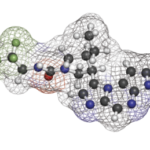 Rituximab-abbs Available in the U.S.
Rituximab-abbs Available in the U.S.
A Truxima (rituximab-abbs) injection is now available in the U.S. to treat patients with non-Hodgkin’s lymphoma, chronic lymphocytic leukemia and other cancers.1 Truxima is biosimiliar to Rituxan (rituximab). In May 2019, the U.S. Food and Drug Administration (FDA) approved Truxima for all of Rituxan’s oncology indications. The approval was based on a comprehensive review of data, including analytical characterization, nonclinical data, clinical pharmacology, immunogenicity, clinical efficacy and safety.
Due to a patent settlement, an FDA submission is pending for Truxima to be used to treat rheumatoid arthritis, granulomatosis with polyangiitis and microscopic polyangiitis. A license from Genentech, the maker of Rituxan, that would expand Truxima’s label to include these indications is also pending and expected in the second quarter of 2020.
Upadacitinib Studied for PsA
On Oct. 31, researchers announced the results of SELECT-PsA 2, a phase 3, multi-center, randomized, double-blind, parallel-group, placebo-controlled study. The study evaluated the safety and efficacy of upadacitinib in adults with active psoriatic arthritis (PsA).2 To be enrolled in the study, patients had to have a history of inadequate response to at least one biologic disease-modifying anti-rheumatic drug (bDMARD). Patients were randomized to receive 15 or 30 mg of upadacitinib or placebo, followed by either 15 or 30 mg of upadacitinib at Week 24.
The primary endpoint was the percentage of patients who achieved an ACR20 response at Week 12. Patients in both upadacitinib groups met the primary study endpoint. The results: 57% of 15 mg upadacitinib-treated patients achieved an ACR20 response, and 64% of 30 mg upadacitinib-treated patients achieved an ACR20 response. Only 24% of placebo-treated patients achieved an ACR20 response.
Secondary study endpoints included a change from baseline in the Health Assessment Questionnaire Disability Index (HAQ-DI), the proportion of patients who achieved ACR50 and ACR70 responses at Week 12, the proportion of patients who achieved Psoriasis Area and Severity Index (PASI) 75 at Week 16 and the proportion of patients who achieved minimal disease activity at Week 24.
At Week 16, a PASI 75 response was achieved by 52% of 15 mg upadacitinib-treated patients, 57% of 30 mg upadacitinib-treated patients and 16% of placebo-treated patients. At Week 24, 25% of 15 mg upadacitinib-treated patients, 29% of 30 mg upadacitinib-treated patients and 3% of placebo-treated patients achieved minimal disease activity. Significantly more upadacitinib-treated patients achieved ACR50 and 70 responses than did placebo-treated patients (P<0.0001).
No new safety signals were identified during the study.


